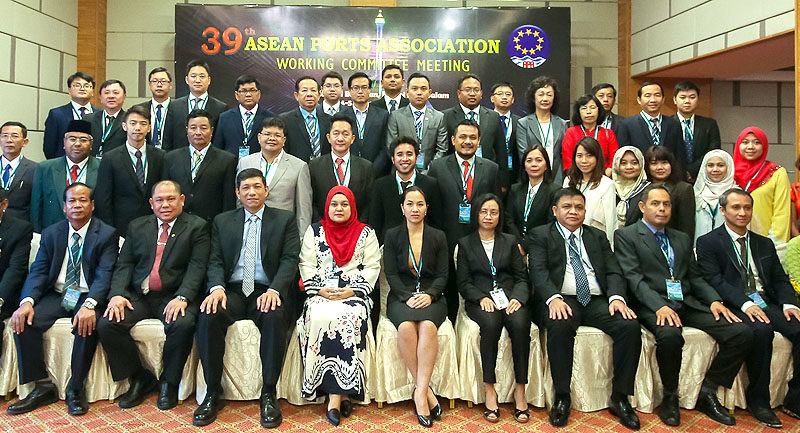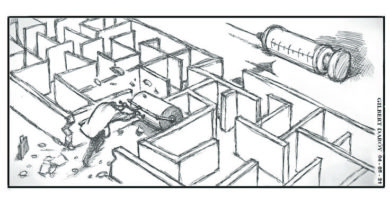ASEAN: Working Committee meeting highlights ASEAN ports development
Delegates of the 39th ASEAN Ports Association in a group photo. – PHOTOS: BAHYIAH BAKIR
.
THE 39th ASEAN Ports Association (APA) Working Committee was officially launched at the StarLodge yesterday by Chief Executive of the Maritime and Ports Authority of Brunei Darussalam (PBMP) Haji Mohd Salihin bin Haji Aspar.
Hosted by the PBMP, the two-day meeting is attended by delegates from the APA Secretariat in Cambodia, Indonesia, Malaysia, Myanmar, the Philippines, Singapore, Thailand and Vietnam.
Haji Mohd Salihin shared current developments in Brunei’s maritime administration, which is regulated by the PBMP, an amalgamation of the Marine Department and Ports Department under the Ministry of Communications.
He explained that Muara Port Company (MPC) Sdn Bhd, the new port operator which has been managing the Muara Container Terminal since February 2017, was appointed to take over the operations at the Muara Conventional Terminal on July 2, this year.
“Since their appointment as the Muara Port operator, MPC has made significant investments in upgrading the port facilities and equipment with the objective of improving Muara Port efficiency and its level of services, which is in line with the government’s Ease of Doing Business objectives,” he added.
Haji Mohd Salihin emphasised the importance of comprehensive planning to secure a sustainable and sustainable port in terms of infrastructure, operations and port security, to ensure efficient productivity.


“The quality of infrastructure, port facilities and service performance are some of the key mechanisms to ensure that regional ports will continue to operate, even under uncertain weather conditions,” he said.
“Indeed, safe and secure ports are also crucial in ensuring top-notch port safety and security, especially against human threats. This is significant in ensuring a long term solidification of port expansion and growth.”
Haji Mohd Salihin highlighted that it is essential for the ASEAN region to develop ports which can guarantee the safety and protection of the maritime environment, while also benefitting communities.
“Developing ports can help the region to expand its trade and connectivity globally, which consequently, will also assist in spurring domestic connectivity through economic development, supported by infrastructure and communications networks, as well as the movement of people, goods and services,” he said.
Among the issues being discussed is the development of the port sector across ASEAN, in addition to the improvement of human resources through training courses and workshops organised by APA member countries.





 All photographs, news, editorials, opinions, information, data, others have been taken from the Internet..aseanews.net |
All photographs, news, editorials, opinions, information, data, others have been taken from the Internet..aseanews.net | 






